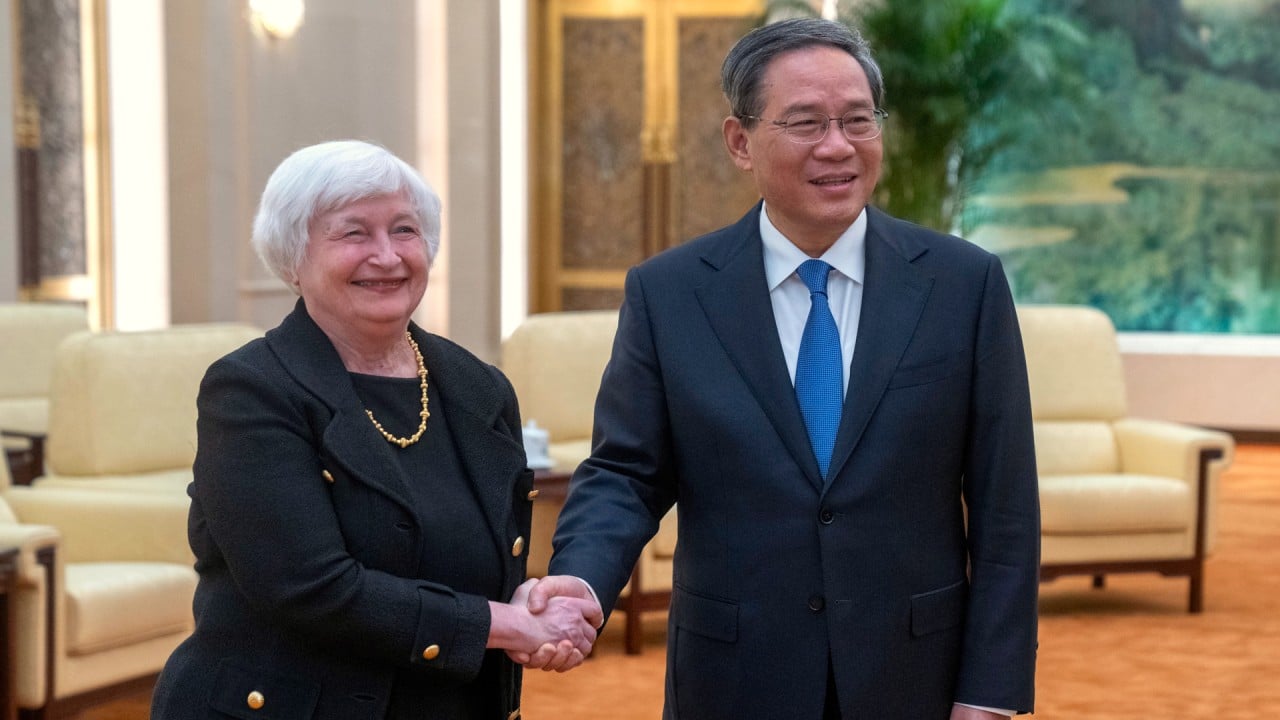
03:44
Yellen hails ‘step forward’ in US-China ties despite national security concerns
After Yellen’s China trip saw these demands made and missteps avoided, Beijing calls to ‘beef up’ US cooperation
- But despite an upbeat assessment by both sides, rifts still persist and US restrictions will remain in the trade of various goods to China, such as advanced technology
- More frank exchanges between Beijing and Washington also sought, plus enhanced bilateral coordination to address global challenges
Beijing urged Washington to remove economic sanctions on Chinese companies and called for joint efforts to address global challenges, in talks with US Treasury Secretary Janet Yellen.
“China’s development is an opportunity, rather than a challenge, to the US. It means benefits, not risks,” the Ministry of Finance said in a statement on Monday to wrap up China’s position in the talks with Yellen during her four-day visit.
“During the talks, China reiterated its requests for the US to remove tariffs, stop containing Chinese companies, ensure fair treatment in bilateral investment, loosen export controls, and lift bans on Xinjiang-related products,” the ministry statement said. “China hopes the US will take concrete measures in response to [Beijing’s] major concerns in bilateral economic relations.
“It is practical, and the correct choice, to beef up bilateral cooperation.”
As US-China ties hit new lows, are diplomatic backchannels still effective?
Yellen said on Sunday in Beijing before her departure that the 10-hour bilateral talks with China’s new economic officials during her visit helped lay the groundwork for surer footing to stabilise the strained relations, and she expected more engagement onward.
Despite her upbeat assessment, rifts still persist, and the US will continue to impose national security restrictions on China’s access to advanced technology.
The US has put more than 1,000 Chinese companies on sanction lists or under export controls, and is mulling new restrictions on US investment in China.
Beijing has repeatedly lashed out at Washington’s alleged abuses of national security, and broad bilateral relations have plumbed new lows in recent years amid a raft of hot-button issues, including tech restrictions, national security, human rights and Taiwan.
She reiterated that the US does not seek to decouple from China, as doing so would be disastrous to both countries.
Differences should not lead to estrangement but should serve as the impetus for closer exchange and communication
The finance ministry statement added that the US said it “was not intent on forcing countries to take sides, as doing so would lead to fragmentation in the global economy”.
“Frank exchanges are needed between the two countries to reach a consensus on important issues in bilateral economy and to inject stability and positivism into economic relations,” the statement added.
It also called for coordination to tackle global challenges such as economy, climate change and debt relief.
“Confronted with severe global challenges, China hopes developed countries including the US will take on responsibilities, and be mindful of concerns in the developing world,” it added.
“Differences should not lead to estrangement but should serve as the impetus for closer exchange and communication.”

